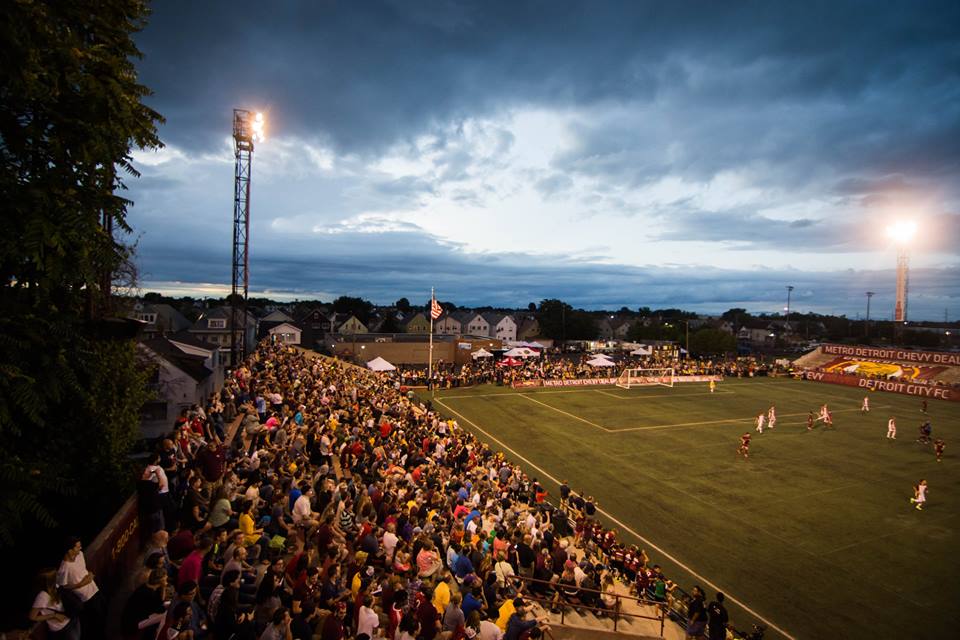Detroit City FC is one of the great stories of amateur soccer when it comes to fan support and crowdfunding, but the owners say they’re looking to moving up to a Division II or Division III professional league by this fall — providing funding can be landed.
As far as National Premier Soccer League teams are concerned, Detroit City FC is the poster child for success. With an operating budget of $1 million and a full-time staff of five, Detroit City FC is arguably the most successful NPSL team out there. The team averaged 5,398 in 15 homes matches this season — better than many USL and NASL teams to date — and a crowdfunding effort raised $700,000 for stadium improvements at Keyworth Stadium. To move up to the next level, Detroit City FC owners are talking both to the Division II NASL or the independent National Independent Soccer Association (NISA), a new league positioned as a Division III circuit, including promotion and relegation with an upcoming Division IV league. The NISA hasn’t yet been sanctioned by USSF, though league founder Peter Wilt is pursuing accreditation.
But the Detroit City FC numbers, interestingly, are not that great when compared to those of pro soccer, even pro soccer at the Division II or independent level. For starters, the team is on the hook to pay pay back investors in the crowdfunding effort for Keyworth Stadium — some 22 percent of game-day revenue.
Earlier this summer the Detroit City FC folks were looking at a move to NASL or USL, but it looks like USL is out of the equation. At a minimum, USSF requires a Division III team to have an owner with a$10 million net worth, with a 35 percent or larger stake in the club, which means Detroit City FC would need to meet that criteria — and it doesn’t now.
From Crain’s Detroit Business:
Kropp declined to say much about the outside investment other than candidates are a mix of local, national and European groups.
“I can’t give any details, but there are very active discussions under way,” he said.
How much money an investor would need to inject into DCFC to get it to a higher level of soccer is unclear, other than it’s in the millions of dollars.
“We’ve got an amount of money we know we need to make it work,” Kropp said.
There is a danger, unstated by Kropp, that by bringing in some big bucks the unique culture of Detroit City FC could be tested. Grassroots soccer is a great development on the American soccer front, as many NPSL teams have adopted similar community-based business models.
RELATED STORIES: Detroit City FC Could Join Higher League

